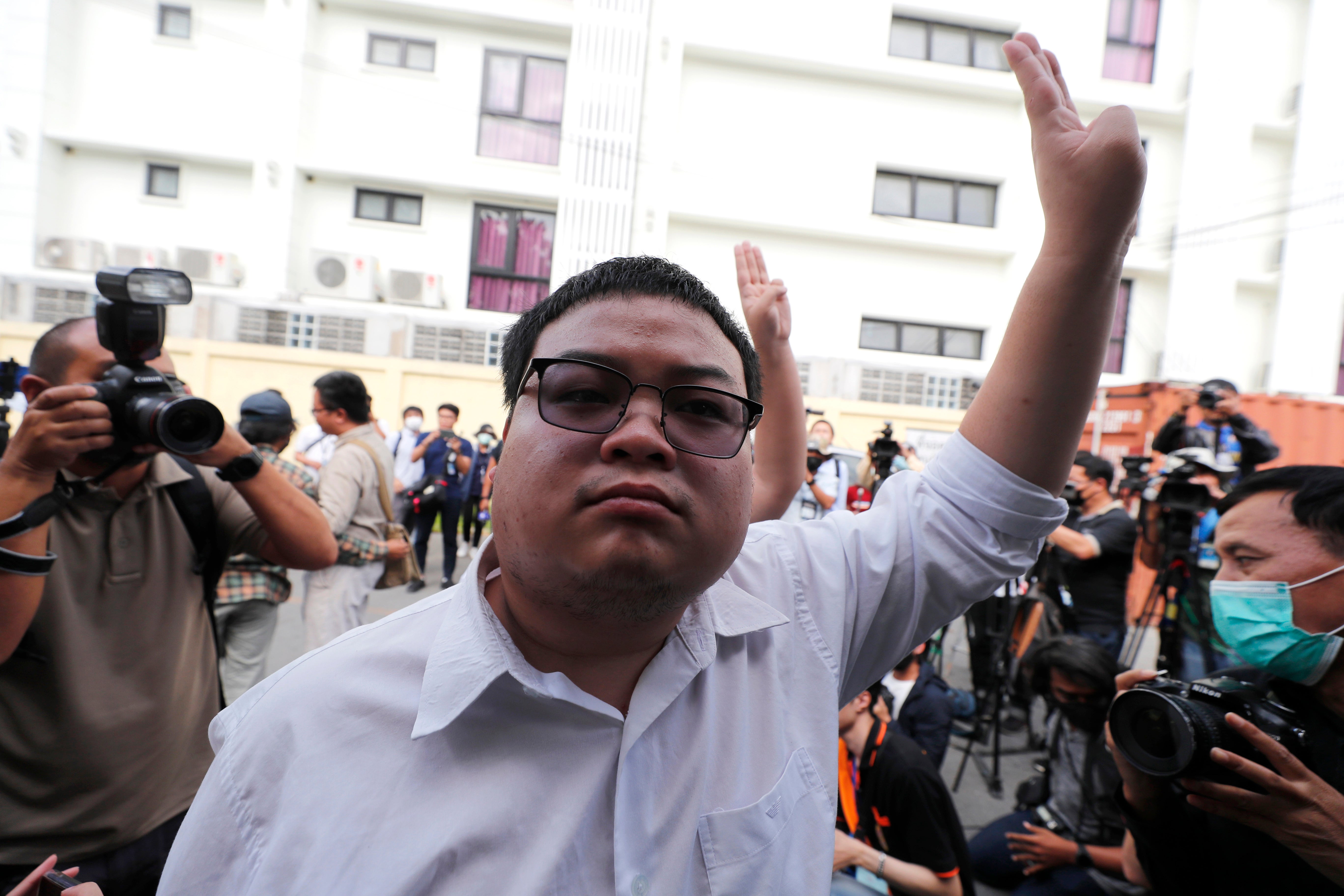Thai protest leader on hunger strike given IV drip in prison
One of the leaders of Thailand’s pro-democracy movement is being administered an intravenous fluid drip in prison after corrections officers said they found him weakened becauser of a hunger strike that has lasted longer than two weeks

Your support helps us to tell the story
As your White House correspondent, I ask the tough questions and seek the answers that matter.
Your support enables me to be in the room, pressing for transparency and accountability. Without your contributions, we wouldn't have the resources to challenge those in power.
Your donation makes it possible for us to keep doing this important work, keeping you informed every step of the way to the November election

Andrew Feinberg
White House Correspondent
One of the leaders of Thailand s pro-democracy movement was being administered an intravenous fluid drip in prison on Friday after officers said they found him weakened because of a hunger strike that has lasted longer than two weeks.
Parit Chiwarak, 22, was charged in February with sedition and defaming the monarchy for his role in leading demonstrations. Parit's lawyer requested bail for him and three others charged with the same offences, but the court denied it.
Corrections officials at Pathumthani Detention Center north of Bangkok started giving Parit intravenous fluids last Saturday, a spokesperson from the Department of Corrections said.
Parit was one of several leaders behind the protest movement that has campaigned since last year for Thai Prime Minister Prayuth Chan-ocha and his government to step down. They want the constitution amended to make it more democratic and for the monarchy to be reformed to make it more accountable.
The demand about the monarchy is the most radical and controversial, because the institution has been widely considered an untouchable, bedrock element of Thai nationalism. It has been considered taboo to publicly criticize the monarch, and insulting or defaming key royals is punishable by up to 15 years in prison per incident under the lese majeste law.
According to Thai Lawyers for Human Rights, Parit faces at least 20 charges related to defaming the monarchy.
The activists focused late last year on the monarchy issue with speeches and activities that drew an increasing tough response from Prayuth’s government. After earlier pursuing other charges, it began bringing complaints of lese majeste against them. The charge had not been used for about three years at the request of King Maha Vajiarlongkorn.
Some 82 people related to the protests now face lese majeste charges since use of the law was revived in November last year.
Subscribe to Independent Premium to bookmark this article
Want to bookmark your favourite articles and stories to read or reference later? Start your Independent Premium subscription today.